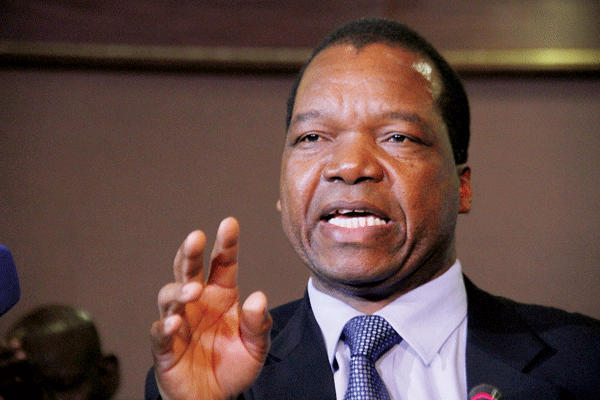
BY HARRIET CHIKANDIWA RESERVE Bank of Zimbabwe (RBZ) governor John Mangudya has said the country does not have sufficient foreign currency to dollarise the economy as the local currency continues to slide in value.
There are growing calls for the government to dump the Zimbabwe dollar that has been losing value against the greenback, resulting in increases in prices of goods and services.
The local currency now trades at $230 against the US dollar on the parallel market and below $120 at the auction system.
Economists have warned that the country is on the verge of redollarising, but Mangudya said it was not sustainable.
“In any case, the financial system is largely constituted of local currency with around 56% of total deposits being local currency and the balance of 44% being foreign currency deposits, which shows that there is no sufficient foreign currency liquidity to support dollarisation in Zimbabwe,” Mangudya said in his monetary policy statement presented on Monday.
“It is for this reason that the bank encourages the business community that pays part of its local expenses in foreign currency to ensure that such payments are proportionate to their foreign exchange receipts for there to be harmony in the national payment system.”
“It is thus imperative to broaden the transactions for which the local currency would be used for payments in the economy for purposes of enhancing competitiveness and increasing production and productivity.”
“Legislation of a fixed exchange rate as was the case in 2009 when the US dollar was introduced as the currency of transaction, is not ideal for any economy as it renders the economy uncompetitive and a supermarket economy and gives the wrong impression that foreign currency is a domestic currency which is earned without exporting,” Mangudya said.
- Chamisa under fire over US$120K donation
- Mavhunga puts DeMbare into Chibuku quarterfinals
- Pension funds bet on Cabora Bassa oilfields
- Councils defy govt fire tender directive
Keep Reading
Economists, who spoke to NewsDay, expressed mixed feelings about Mangudya’s statement, calling on the monetary authorities to address inflationary pressures.
Economist Prosper Chitambara said: “The biggest challenge that we have is the chronic high inflationary environment which has resulted in the weakening of the Zimbabwean dollar, resulting in people losing confidence in it as an effective medium of exchange and store value and wealth among other functions that money is supposed to play,”
“We need to address decisively the key drive rs of the high economic trends that we find ourselves in which are largely emanating from high money supply growth and distortions within our exchange rate management system as well as the widening of the black market.”
Another economist, Vince Musewe said dollarisation was counterproductive.
“We have to earn foreign currency in the country. Dollarisation has a serious economic impact. It means all businesses must be able to generate and access foreign currency so that they can transact.
“This economy does not generate enough dollars in order for us to dollarise, currently dollarisation does not make sense. It is counterproductive in this country, there won’t be economic growth,” Musewe said.
- Follow Harriet on Twitter @harrietchikand1











